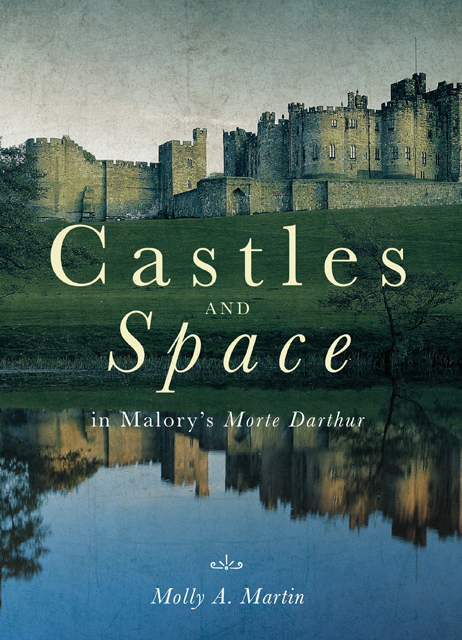Book contents
- Frontmatter
- Dedication
- Contents
- List of Plates
- Introduction: Into the Castle
- 1 Castles as Political Centers
- 2 Castles and Community Identity
- 3 Castles and Ritual
- 4 Castles and the Domestic Sphere
- 5 Castles as Prisons
- 6 Castles at War
- Afterword: Beyond the Castle Gate
- Bibliography
- Acknowledgements
- Index
- Arthurian Studies
1 - Castles as Political Centers
Published online by Cambridge University Press: 20 January 2023
- Frontmatter
- Dedication
- Contents
- List of Plates
- Introduction: Into the Castle
- 1 Castles as Political Centers
- 2 Castles and Community Identity
- 3 Castles and Ritual
- 4 Castles and the Domestic Sphere
- 5 Castles as Prisons
- 6 Castles at War
- Afterword: Beyond the Castle Gate
- Bibliography
- Acknowledgements
- Index
- Arthurian Studies
Summary
An Associated Press article from November 2013 titled ‘National Restaurant Chains Exotic in Alaska’ details the excitement surrounding the arrival of an Olive Garden in Anchorage, Alaska.The article quotes a writer for the local newspaper, who enthused, ‘It’s like, “Oh, we’re actually a city now.” … People have always been wanting to feel we’re legitimate, we’re really a place. Somehow having an Olive Garden, for some people, makes it seem like that.’The title of the article implies that for the locals, this and other similar chains being built in the city and state are exotic. Paradoxically, however, these restaurants make Alaska decidedly less exotic in its own eyes. The Olive Garden – like the other chain establishments in town – creates a link between Alaska and the continental U.S., between the periphery (marked geographically and socially) and the core. These ties homogenize and ‘Americanize’ Alaska, which has been a state for over fifty years (since 1959).
The phrase ‘we’re really a place’ echoes the terminology used by human geographers, among others, to highlight the ways in which meaning can distinguish places. Cresswell, for example, explains that ‘When humans invest meaning in a portion of space and then become attached to it in some way (naming is one such way) it becomes a place.’I certainly do not want to imply that the quoted journalist, Julia O’Malley, is conversant in spatial theory (or that she is not); her phrasing does, however, imply a more general awareness of the ways in which we make sense of environments. O’Malley’s excitement and, especially, how she frames that excitement provide a useful framework for understanding both the impact of a restaurant chain’s arrival in a place that considers itself somewhat far-flung and the importance of castles in the socio-political milieu of Malory’s Morte Darthur – and medieval England in general.
Indeed, the idea that a building can legitimize a community and unify it with a larger socio-political unit resonates with the ways in which the castle functioned in Norman and post-Norman England, even into Malory’s own time. Although evidence indicates that fortified structures in England do predate William of Normandy’s arrival in 1066, there is no doubt that the castle is and was intimately connected to his reign and his subjugation of the land.
- Type
- Chapter
- Information
- Castles and Space in Malory's Morte Darthur , pp. 23 - 58Publisher: Boydell & BrewerPrint publication year: 2019



